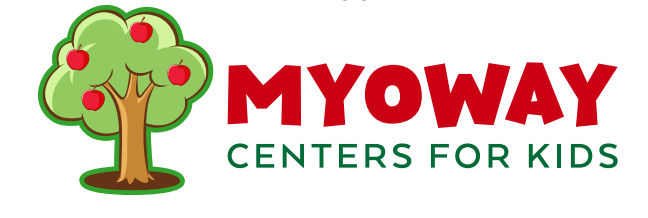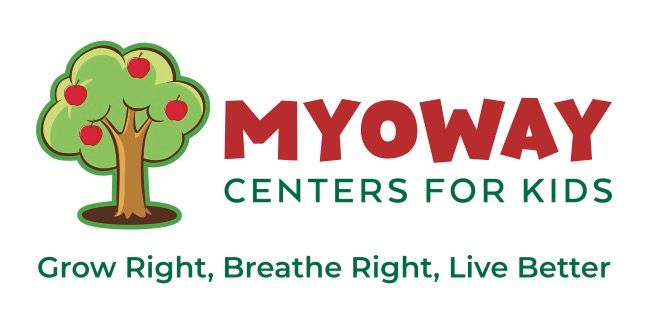Sponsor Spotlight: Proper Breathing is Important to Your Childs Health
By Dr. Leslie Pasco
As a dentist with over 26 years of experience, I’ve seen firsthand the profound impact that underdeveloped jaws and airways can have not only on a person’s smile but also on a person’s health. In the wake of COVID-19, while we’ve focused on global pandemics, there’s a quieter global crisis affecting our children: underdeveloped jaws and airways. It’s alarming that ninety percent of children exhibit signs of this condition which not only manifests as crowded teeth and the need for braces, but can lead to serious sleep-related breathing disorders and a myriad of other health issues such as digestive disorders, neurological problems, growth and posture issues, asthma, eczema and more. These problems persist into adulthood and can require aggressive treatment if not properly addressed.
Throughout my career, l’ve treated countless patients and witnessed the prevalence of underdeveloped jaws and airways in today’s industrialized and fast-paced society. This prompted me to shift my focus towards myofunctional therapy after my retirement from clinical dentistry. Myofunctional therapy (MFT) is a therapy that helps treat orofacial myofunctional disorders (OMDs), which are abnormal patterns of movement and muscle posture in the face or mouth. MFT therapy targets the muscles in the face, mouth and airway to improve the function and strength, which can help with breathing, bite, and facial posture. My goal is clear: to help children grow right, breathe right and live better. This passion led to the creation of MyoWay Centers for Kids, specializing in noninvasive myofunctional therapy aimed at supporting jaw growth and improving nasal breathing patterns in children.
Underdevelopment of the jaws isn’t a new issue; it has been documented dating back to the early 1800s. Factors such as faster-paced living, soft processed foods, environmental pollutants and mouth breathing contribute to its prevalence. Mouth breathing, usually reserved for the lifesaving flight or fight response, signals the brain that the body is under stress and prepares the body to fight or run from the dangerous situation. But if a child is chronically mouth breathing, whether it is during sleep, wakefulness or both, the child’s body is constantly operating under the stimulus of “stress” and “danger”, leading to stressed induced conditions including signs and symptoms of ADHD. Many children may be improperly diagnosed, and the actual cause is going unnoticed. Infact, recent studies show that altered sleep patterns and sleep apnea are common in children with persistent mouth breathing and such children also suffer from problems such as difficulty in sustaining attention in school, easy fatigability, lethargy, and behavioral problems. These symptoms are similar to the symptoms in ADHD leading to potential misdiagnosis of ADHD in children who breathe through their mouth more than their nose. Literature also shows that children with breathing problems like snoring, mouth breathing, or apnea are 40-100 times more likely to develop behavioral problems resembling ADHD which could often lead to a misdiagnosis.
Small jaw and airway
BEFORE
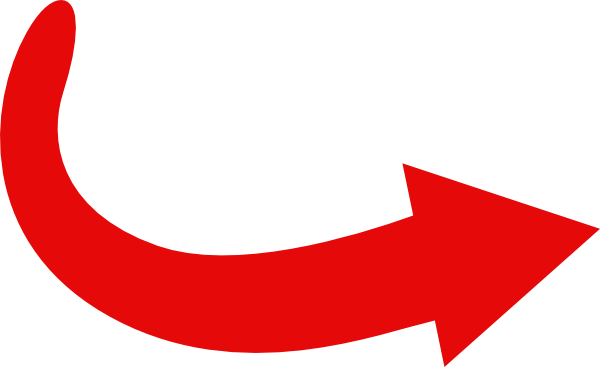
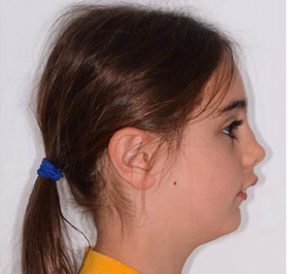
photo source: Dentistry Today 2019
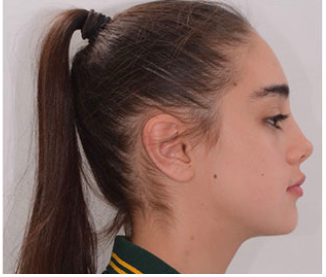
photo source: Dentistry Today 2019
Proper jaw and airway
After

MyoWay Centers for Kids, uses comfortable, medical-grade, FDA-approved silicone appliances that children wear daily for up to one hour and overnight while sleeping to aid jaw development and promote nasal breathing. The appliances are paired with simple exercises to strengthen the oral and airway muscles. Addressing underdeveloped jaw size early is crucial and we advise early screening. Here is what to look for in your child:
- Snoring (even a little)
- Enlarged adenoids or tonsils
- ADHD symptoms
- Loud breathing
- Loud chewing
- Anxiety
- Mouth breathing
- Digestive issues
- Teeth crowding
- Teeth grinding
- Bed wetting
- Eczema
- Poor posture
Our children are the future, and early evaluations, even in infants, are encouraged. It is never too early or too late for an evaluation and our evaluations are always free.
Phone (724) 765-0001
All Rights Reserved | MyoWay Centers For Kids
Website maintained by Xpress, INC
